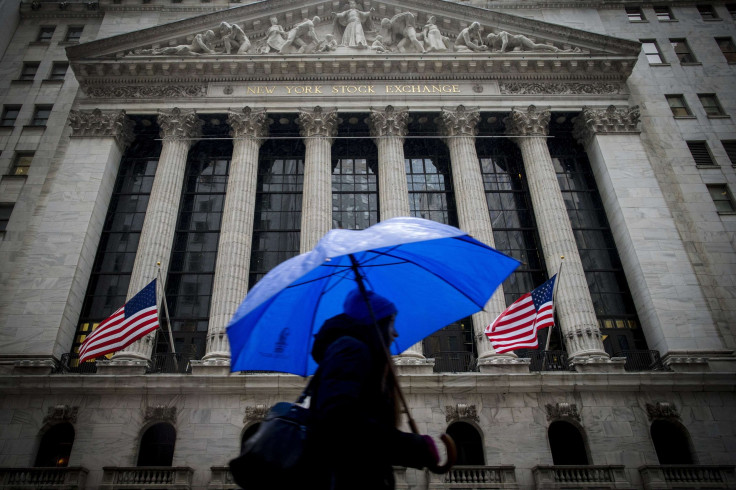Federal Reserve System: Beige Book Reveals Winter Blues Are Weighing On Consumer Spending

The economy continued to expand at a "moderate" pace in January through mid-February, despite harsh winter weather across the U.S., the Federal Reserve’s “Beige Book” revealed Wednesday. However, the weather weighed on consumer spending in some regions in the Northeast. The central bank's survey of business conditions also showed the plunge in oil prices since June is taking a toll on energy firms.
The report, which the Fed publishes eight times a year, highlights the current condition of the U.S. economy within the central bank's 12 districts. It covers a range of economic activity from manufacturing to construction to wage growth and offers economists an opportunity to glean any indication that the U.S. economy is growing faster or slower than forecast.
Winter Affects Retail Sales, Construction
While most Fed districts reported that overall consumer spending increased during the period, harsh winter weather weighed on some parts of the Northeast, which negatively affected retail business in the Boston and New York districts. The Kansas City district also said retail sales had declined since the previous survey.
The Minneapolis district said some apparel stores had difficulty selling winter clothing due to a relatively mild December and January. However, the Boston and Cleveland districts reported increased sales of winter items, such as apparel, rock salt and snow shovels.
A separate report Monday showed consumer spending fell in January as a drop in gasoline prices across America continued to weigh on inflation. Consumer spending, which accounts for nearly two-thirds of U.S. economic activity, declined 0.2 percent in January after falling 0.3 percent in December, the Commerce Department said Monday.
Meanwhile, construction activity was mixed across most districts, mostly due to severe winter weather, the Fed's Beige Book said. While residential construction activity was flat in January and early February, commercial construction increased in most districts, with firms in New York, Atlanta, St. Louis, San Francisco and Richmond, Virginia, showing stable to strong multifamily construction.
Drilling Activity Continues To Decline
Oil and natural gas drilling declined in the Kansas City, Cleveland, Minneapolis and Dallas districts, while the number of drilling rigs declined sharply in those regions, expect for Dallas. The precipitous decline in energy prices since June has led producers in the Cleveland, Kansas City and Dallas districts to anticipate cuts in capital expenditures during 2015.
The previous Beige Book, published Jan. 14, revealed that plunging oil prices since June were beginning to show negative effects in regions that operate heavily within the energy industry, as oil firms reported layoffs and hiring freezes.
Some firms in Wednesday's release continued to report layoffs in the oil and gas sector resulting from declines in energy prices. The Minneapolis district said firms reported that decreased drilling activity in western North Dakota and eastern Montana led to reduced hours and layoffs of oil field workers.
The news comes as crude oil inventories surged to the highest ever on record, causing concerns over a supply glut. U.S. commercial crude oil inventories rose by 10.3 million barrels from the previous week to a record 444.4 million, the U.S. Energy Information Administration said Wednesday.
Economists Look Ahead To Fed's March Policy Meeting
Each of the Fed’s Beige Books is published two weeks before the Federal Open Market Committee policy meeting, which is composed of the Fed's seven boards of governors and five Reserve Bank presidents. The FOMC's next policy meeting with Fed Chair Janet Yellen is March 17-18.
Policy officials at the Beige Book said they saw the economy moving at a “moderate” pace, unchanged from the previous Beige Book. Most economists expect the Fed to hike rates in mid-2015, but if falling oil prices have a negative effect on an improving U.S. economy, weighing on inflation and wage growth, the Fed could pause before hiking rates.
Yellen announced last week during her two-day "Humphrey-Hawkins" Senate Banking Committee hearing that the central bank will not raise interest rates for the “next couple of FOMC meetings,” suggesting an increase in rates could be pushed back to September.
© Copyright IBTimes 2024. All rights reserved.












